How to See the Liberty Bell...in Queens
A copy of the famous American bell can be found inside a bank, which itself is modeled after Independence Hall!


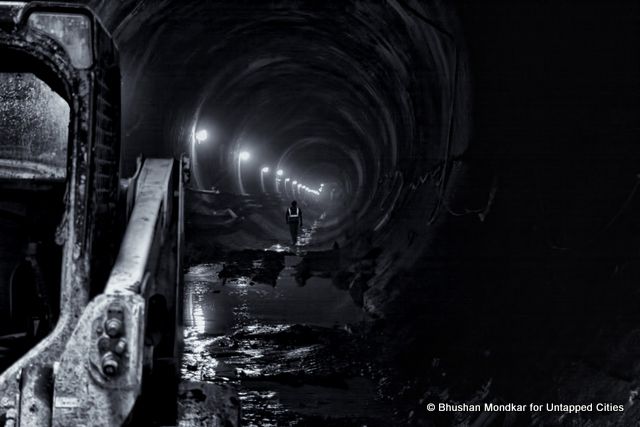
Inside the Second Avenue Subway construction
In the earlier part of the twentieth century as Manhattan surged into the sky, planners dug deep as they envisioned the core of future mass transit to be an underground subway system with new routes at almost every North- South avenue in Manhattan. Among these plans lay an ambitious project; a massive train line under Second Avenue consisting of six tracks that branched into Queens, Brooklyn and the Bronx. So why did this famed project never materialize?
To find out the answer and get to know more about this project, Untapped Cities visited the Second Avenue Subway Community Information Center (SAS CIC) located between 85th and 86th street on Second Avenue.
A detailed sectional model of the proposed 86th Street station greeted a group of some 30 enthusiastic urban-eers gathered at this informal meet-up organized by Urban Omnibus, an online publication that is dedicated to defining and enriching the culture of citymaking. At the event, Laura MacNeil, Director of SAS CIC and Michael Porto, Manager of MTA’s Good Neighbor Initiative introduced the Information Center and its interactive exhibit while summarizing its importance to the community and the large scale project in general.
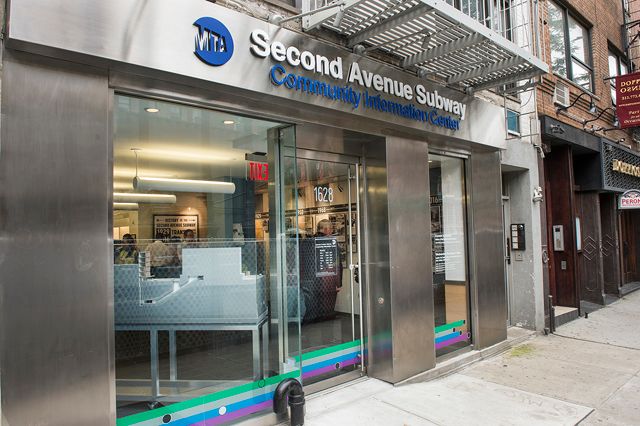
Image courtesy of the MTA
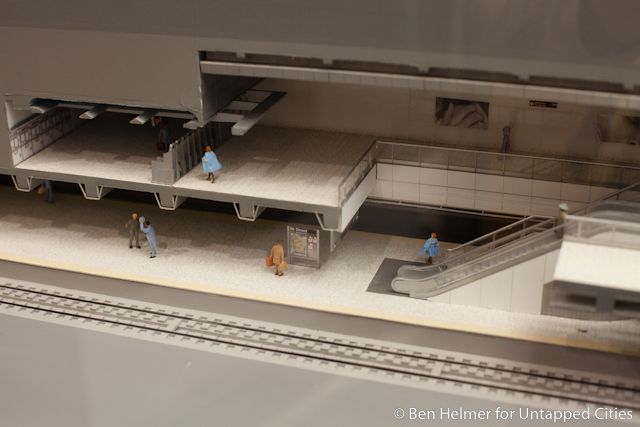
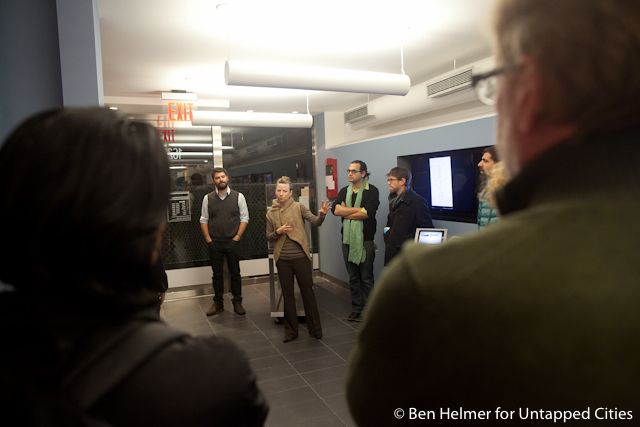
From left to right: Michael Porto ( Manager of MTA’s Good Neighbor Initiative) Laura MacNeil (Director of SAS CIC) Cassim Shepard (Editor, Urban Omnibus) and Jonathan Tarleton (Digital Editorial Assistant, Urban Omnibus)
Since New York City has not witnessed such a complex project in recent decades, the upheaval and commotion caused by heavy machinery and blasting the bedrock, sparked concerns and at times anger from local residents. In hopes to connect with the community in a more transparent manner, MTA set up this innovative Information Center in July to answer questions and satisfy the curiosity of New Yorkers.
The CIC also plans to have temporary exhibits over the next few years. The first one, currently on display, transports visitors back to the nineteenth century detailing out the historic background of this Second Avenue Subway project through a graphic timeline and pictures marking important events.
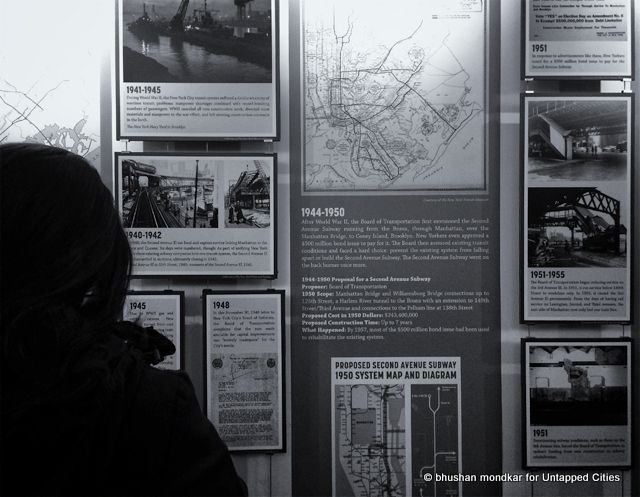
Across this exhibit, iPad controlled TV screens transports visitors into the future with immersive animations and renderings presenting MTA’s vision for the project, while updated construction pictures and videos offer glimpses of its current status. Going a step further, the president of MTA capital construction, Dr. Michael Horodniceanu also leads tours into the caverns for local residents once every month, to demonstrate the complexity of the project.
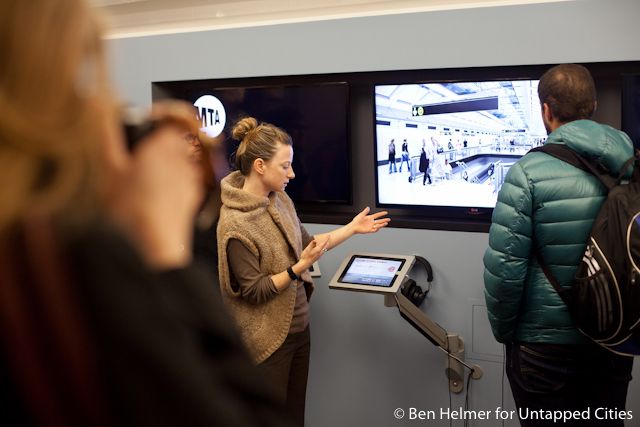
Michael Porto also took us outside, explaining the physical ways in which the construction of the Second Avenue Subway has impacted vehicular and pedestrian flow along the avenue. Back in 1900, New York City carved through its bedrock by employing the “cut and cover” method. Today, a “mechanical earth-worm” (aka the tunnel boring machine) cuts through Manhattan’s ancient schist retaining the physical city above, punctuating it at intervals by the muck houses, which act as transfor points where the debris carved out from caverns below is loaded onto trucks. This debris is then distributed to various construction projects in the region.
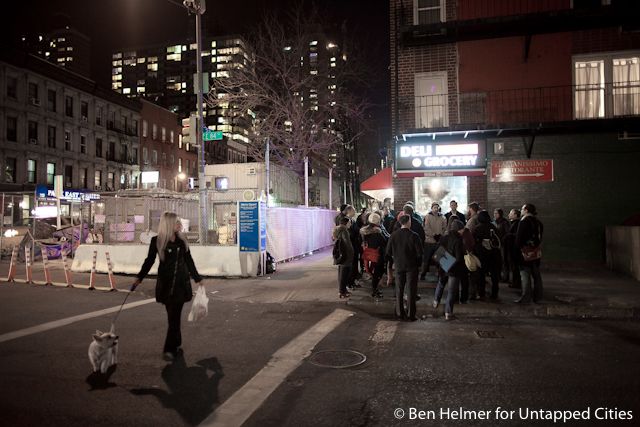
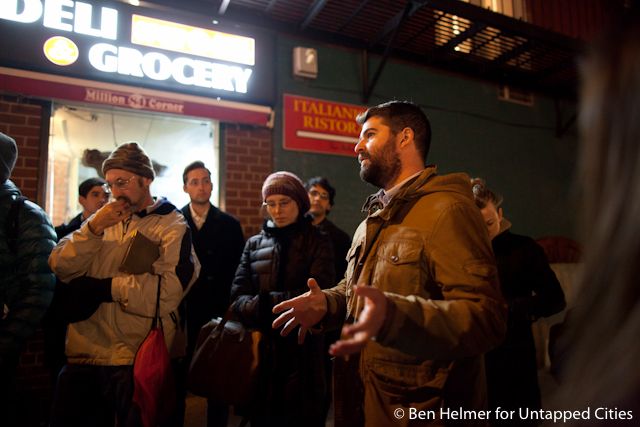
While Upper East Siders living along Second Avenue have withstood the inverse effects of this project for nearly half a decade, the outcome will greatly transform the commute for the 1.3 million New Yorkers packed into the already packed 4/5/6 trains. With the CIC, New Yorkers can now also witness this historic project first hand.
It may appear that the dawn of a City’s development is its most exciting time but this ambitious project shows that New York City is still being reinvented as we continue to promote mass transit just as we did back in the nineteenth century.
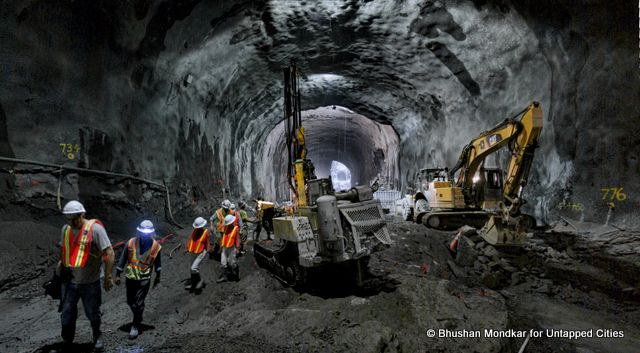
See more behind the scenes photos from our trip inside the Second Avenue Subway construction here and here. Bhushan is an Architect and Urban Designer at Perkins Eastman. Get in touch with him @Bhushan_NYC
This article was written in part by Catherine Mondkar, she is a Conservation Corps Fellow with the NYC Department of Parks and Recreation.
Subscribe to our newsletter